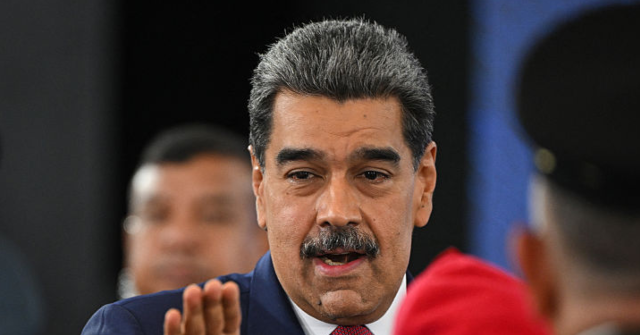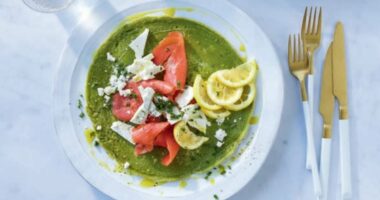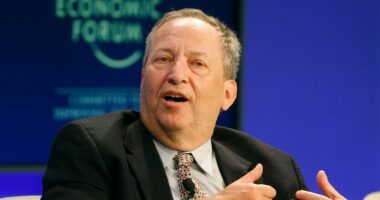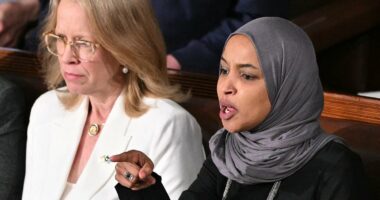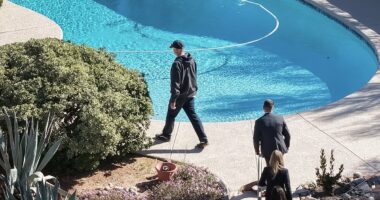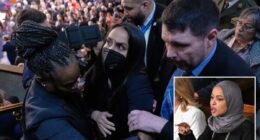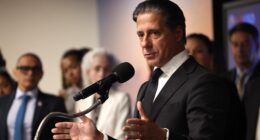Share this @internewscast.com
On Tuesday, Venezuela’s socialist government published a five-page document dismissing President Donald Trump’s recent decision labeling Venezuela and other nations as non-cooperative in combating drug trafficking efforts.
In its statement, Venezuela’s government accused countries like Colombia and Peru of being responsible for regional drug trafficking. It claimed that all the declarations in what it described as an “imaginary and illegitimate self-designation” are “baseless and contradict official data from expert international organizations.”
The U.S. State Department disclosed on Monday that President Trump sent a Presidential determination to Congress marking Afghanistan, Bolivia, Burma, Colombia, and Venezuela as having “failed demonstrably over the past 12 months” to meet obligations under international agreements against narcotics and to make the necessary efforts as demanded by the 1961 Foreign Assistance Act to combat drug trafficking.
This determination references several charges against socialist leader Nicolás Maduro involving narco-terrorism and his ongoing leadership role in the Cartel of the Suns, an international cocaine trafficking operation managed through Venezuela’s military. Currently, the U.S. has offered $50 million for information leading to Maduro’s capture and/or conviction.
“In Venezuela, Nicolás Maduro, an indicted drug trafficker, controls one of the biggest cocaine trafficking networks globally, and the U.S. aims to bring Maduro and other regime members complicit in crimes to justice,” reads the determination. “We also aim to target Venezuelan terrorist groups such as Tren de Aragua and eradicate them from our nation.”
The State Department released the determination shortly after President Trump announced that U.S. military forces executed a “kinetic strike” on “verified, extremely violent drug trafficking cartels and narcoterrorists within the SOUTHCOM area of responsibility.” Trump described in a Truth Social post that this strike took place “when these confirmed narcoterrorists from Venezuela were in International Waters carrying illegal narcotics” bound for the U.S., resulting in the deaths of three individuals aboard the vessel.
This week’s military operation comes days after another Venezuelan drug-laden vessel was struck in international waters as part of President Trump’s ongoing efforts to combat Latin American drug cartels in Caribbean international waters and curb the flow of drugs entering the United States. The strike against the first vessel resulted in the death of 11 members of the Tren de Aragua terrorist organization. Maduro, and members of his regime, have repeatedly insisted over the past weeks that the footage of the first strike is “fake.”
President Trump revealed in remarks to reporters on Tuesday that a third boat was also struck, “but you saw two,” and called upon Maduro to stop sending members of the Tren de Aragua terrorist organization and drugs into the United States.
The Presidential declaration appears to have greatly infuriated the rogue Venezuelan socialist regime, which responded to it in a five-page statement issued by its Foreign Ministry and published by Foreign Minister Yván Gil on his official Telegram account “rejecting and repudiating” its contents “like the entire international community and the dignified countries of Latin America.”
According to the Maduro regime, the Determination is “unfounded” and contradicts official data from international organizations — a claim that the Venezuelan regime justified citing reports from the United Nations Office on Drugs and Crime (UNODC), in which “Venezuela is certified as a territory free of illicit crops.”
“Furthermore, it has been duly proven that there are no drug cartels or plantations for drug processing in our country,” the statement read. “This information is reflected in the reports of the U.S. Drug Enforcement Administration (DEA) (2024-2025), which do not identify Venezuela as a producer, distributor, or transit country for drugs.”
“Venezuela is not a producer, trafficker, cultivator, or storage center for drugs. In conclusion, according to all reports from specialized agencies in this field, our country is not a significant player in this area,” the statement continued.
The Maduro regime continued by asserting that the cited reports “reaffirm” that cocaine production fundamentally occurs in Colombia, “where the drug trafficking economy has been consolidated over the years under the protection of various governments allied with the United States.” The Venezuelan regime pointed at Peru, claiming that drug production has been increasing since the arrival of “illegitimate” governments following the “coup” against communist former President Pedro Castillo. Castillo was arrested in 2022 after he attempted to dissolve the nation’s Congress and rule by decree.
The Maduro regime claimed in the statement that its “drug trafficking fighting program” has managed to capture “at least 70 percent” of the drugs passing through Venezuelan territory. Citing UNODC reports, it said that drug trafficking money laundered in the U.S. amounts to 2.7 percent of its GDP, pointing at banks with U.S. presence such as HSBC and Wells Fargo for “admitting their involvement in laundering money from drug trafficking.”
Accusing Venezuela of participating in drug trafficking, it continued, was “an embarrassing lie.”
“This great propaganda farce, in the worst Hollywood style, is now compounded by a new element: the threat of military aggression against Venezuela, exploiting an issue that should be dealt with exclusively through international and multilateral security, judicial, and police cooperation mechanisms,” the statement continued.
The Maduro regime has repeatedly insisted over the past weeks, without evidence, that the United States’ ongoing military deployment in Caribbean international waters to fight drug cartels and drug trafficking in the region is part of a purported plan to “invade” Venezuela and oust Maduro from power.
In late August, the Maduro regime formally called upon U.S. Secretary-General António Guterres to intercede and help “stop” the United States’ ongoing drug-fighting efforts in the Caribbean under grounds that the military actions are a “threat” to the ruling socialists.
